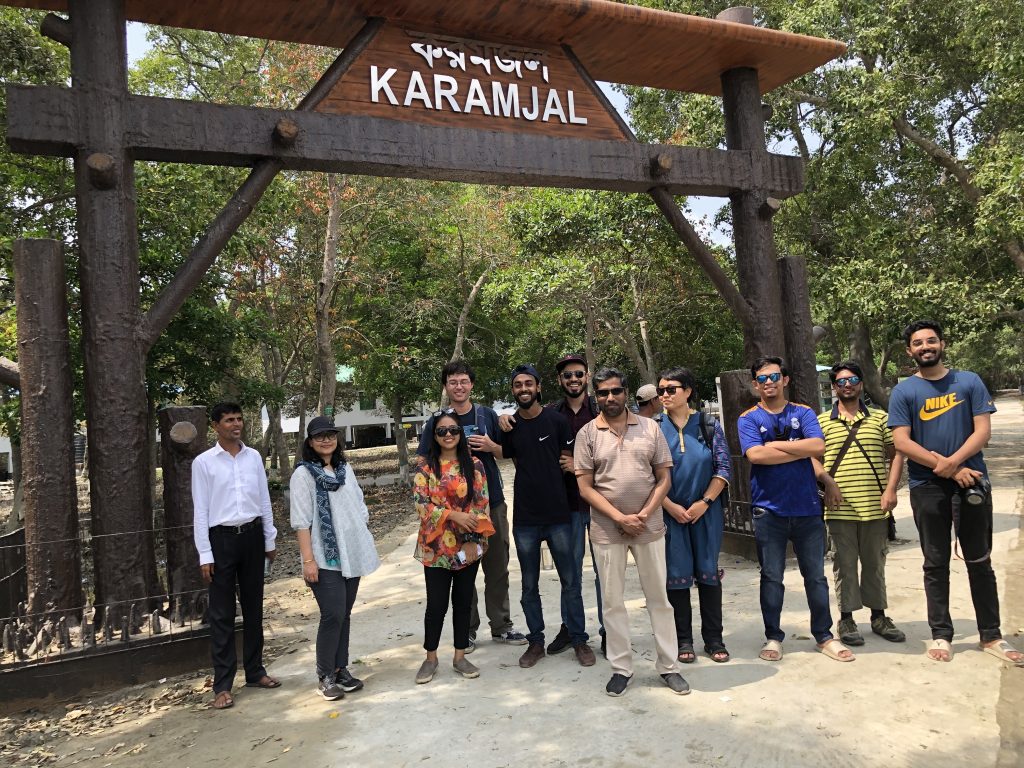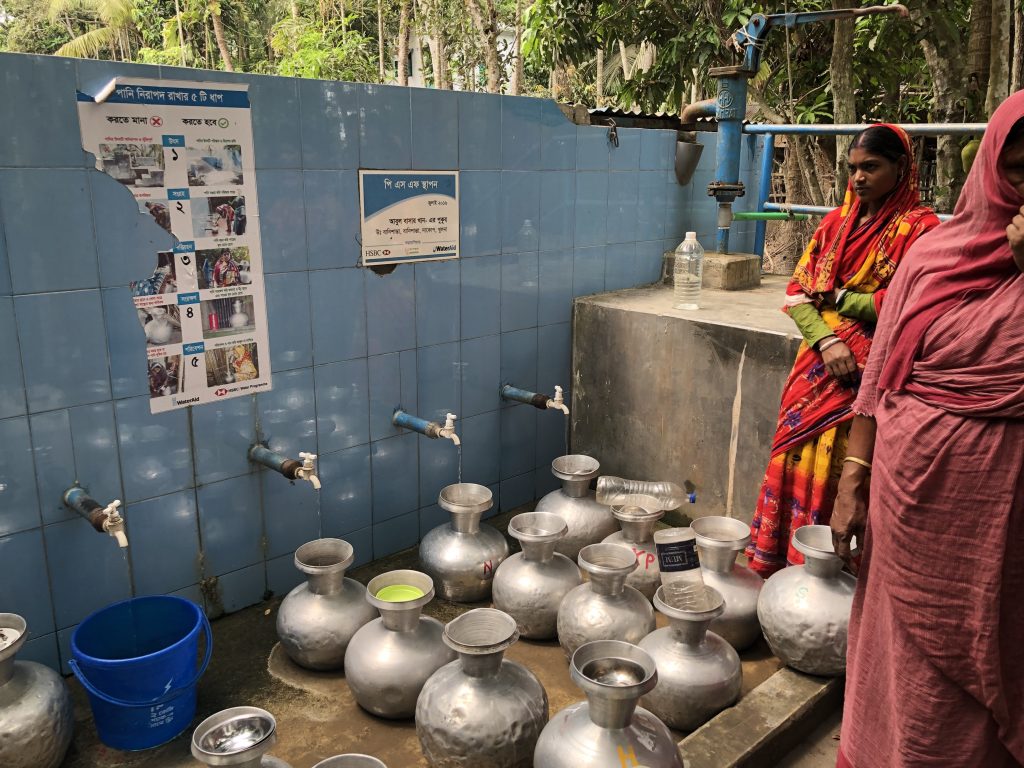
DURP and NSU students and faculty supervisors, Karamjal
In Spring 2022, students in a capstone course in the Department of Urban and Regional Planning (DURP) at the University of Hawai‘i at Mānoa (UHM), traveled to Bangladesh to explore the impacts of climate change and adaptive measures for building resilience and sustainability in the country’s deltaic southern coastal region. Dr. Ashok Das, Associate Professor at DURP designed the course, and conducted it jointly with Dr. Md. Sirajul Islam, Professor in the Department of Civil and Environmental Engineering at Dhaka’s North South University (NSU). Undergraduate students at NSU from Dr. Islam’s department also took the course. It helped advance ongoing efforts at UHM’s College of Social Sciences to deepen students’ understanding of critical issues such as climate change—through experiencing conditions on the ground and interacting with those impacted—to enable and enrich future research and teaching from espousing global perspectives. “This course was a unique experience. It allowed students at different academic levels—from undergraduate to Ph.D.—to learn together, and in an interdisciplinary way, about the manifestations, context-specificities, and nuances of local climate change impacts,” noted Ashok Das. This UHM-NSU collaboration was initiated and facilitated by Dr. Katherine Li, Director of External Affairs at NSU, and supported by the Vice Chancellor of NSU.
Assisted by representatives of the Bangladesh Association for Sustainable Development (BASD), and NGO, a group of students and faculty from UHM and NSU visited eco-villages in the Sundarbans region—home to the world’s largest area of mangrove forests. There they interviewed residents of coastal communities impacted by sea level rise, met with local government officials in Khulna, members of local civil society groups to gain deeper insights into the issues threatening these rural communities and to explore possible solutions.

Community pond-sand-filter for drinking water supply, Banishanta
“The field trip was a great opportunity to listen to local women, NGO workers, and local government officials about the emerging challenges due to sea-level rise, as well as their will and efforts to adapt with minimal resources,” said Sandy Jiyoon Kim, DURP Ph.D. student. “The experience helped me to understand the complexities of balancing the preservation of the environment and the support of socioeconomic development on the ground. Working together with students at North South University, we got to know about their different cultures and backgrounds, which led to friendship beyond academic collaboration.”
In these rural communities in the Sundarbans, contamination of drinking water resources due to saltwater intrusion, disappearing livelihoods, growing food insecurity, and compounding disaster risk, among others, are increasingly becoming existential threats. NGOs, such as BASD, have been instrumental in trying to build community resilience and drawing these critical issues to the attention of local government and external agencies.
“Our trip with UHM in Khulna was absolutely amazing and also it was very much informative. I had learned about the struggle of the coastal zone people and how they are coping with the situation. Through this project I came to know about the benefits of eco-villages and permaculture which we saw throughout the trip. The people of Banishanta are getting so much help from this permaculture” remarked NSU undergraduate Sabbir Ahmed Sunnaby, who took the course and participated in the field visits.
“This capstone project showcased the potential for collaboration among students and faculty from both universities, and laid the groundwork for future projects,” said Priyam Das, DURP Chair, who was the UHM faculty supervisor during the field trip.

Disaster preparedness training demonstration, Banishanta
